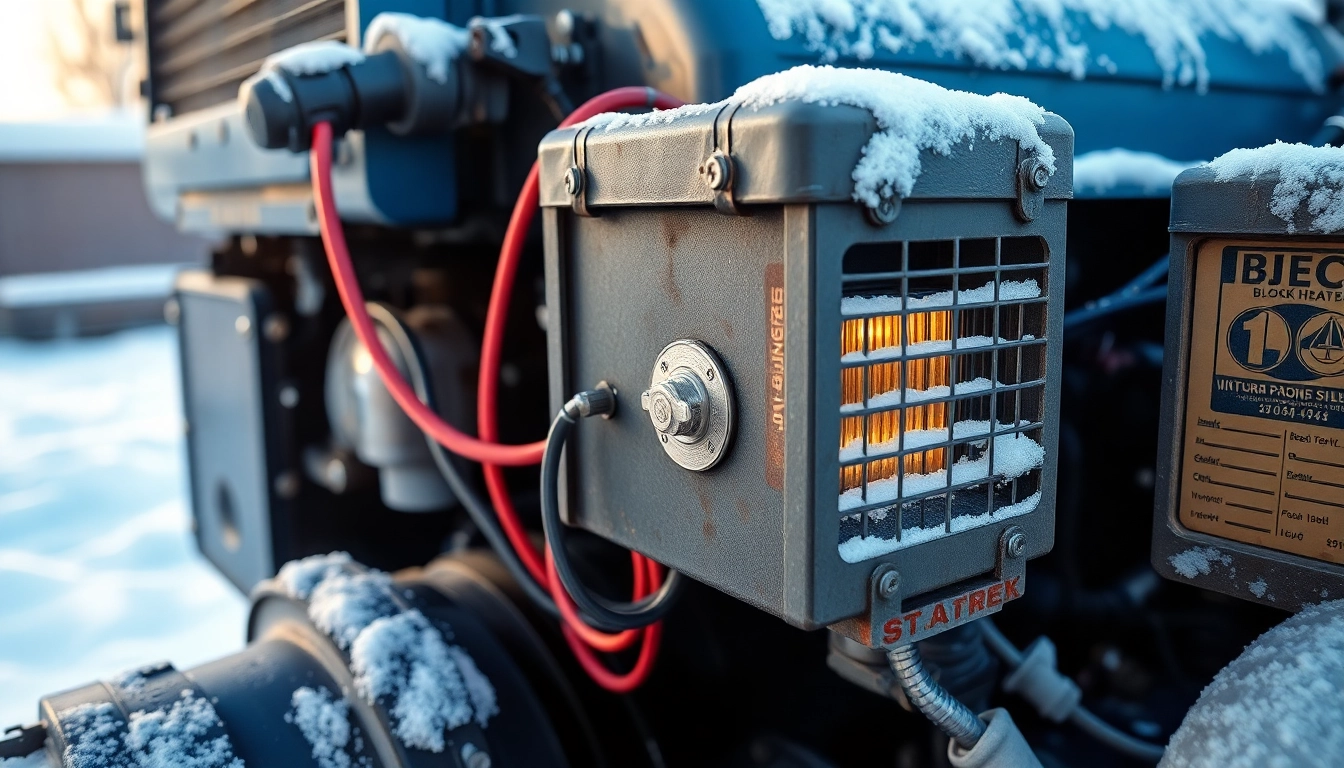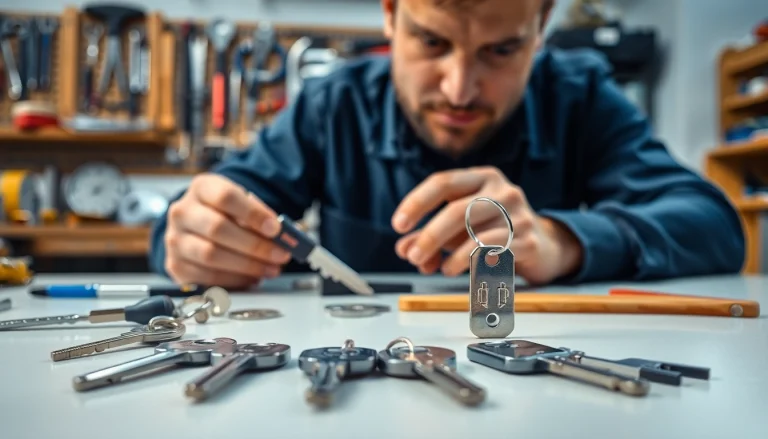
Understanding Diesel Block Heaters
What is a Diesel Block Heater?
A diesel block heater is an electrical device designed to preheat the engine block of a diesel engine. By keeping the engine oil and coolant warm, these heaters ensure a reliable start during frigid temperatures. Diesel engines are especially susceptible to starting issues in cold weather due to the nature of their combustion process, which is less efficient at low temperatures. Block heaters are essential, especially for individuals living in areas where winter temperatures frequently drop below freezing.
How Diesel Block Heaters Function
Typically, a diesel block heater functions by utilizing electrical resistance to generate heat. The device is usually installed within the engine block or attached to the engine’s coolant system. When plugged into a power source, the heater warms the engine’s coolant, which in turn raises the temperature of the engine block and oil. This is crucial because warm oil circulates better than cold oil, ensuring that the diesel engine starts more easily and operates more efficiently once running.
Benefits of Using a Diesel Block Heater
Implementing a diesel block heater has several advantages, including:
- Improved Starting: Pre-heated oil and coolant make ignition easier, reducing the effort needed to start the engine.
- Reduced Emissions: By ensuring a smoother start, the heater can reduce the number of cold-start emissions.
- Increased Engine Longevity: Keeping the engine components warm can minimize wear and tear, potentially extending the life of the engine.
- Fuel Efficiency: A warmed engine reaches operational efficiency quicker, enhancing fuel economy during the initial minutes of operation.
When to Use a Diesel Block Heater
Temperature Guidelines for Use
Using a diesel block heater is particularly crucial in colder climates. Most diesel manufacturers recommend plugging in the heater when outdoor temperatures drop below 20°F (-6°C). This is based on the fact that diesel engines require more energy to ignite the fuel in colder temperatures, which can lead to hard starts or engine malfunction.
Signs Your Diesel Engine Needs Heating
Aside from the obvious temperature guidelines, there are signs that indicate a diesel engine would benefit from a block heater:
- If starting becomes noticeably difficult or requires longer cranking times.
- When engine oil appears thick and sluggish at startup, indicating it hasn’t properly warmed.
- When routine maintenance reveals excess wear on engine components likely caused by cold starts.
Plug-In Timing and Best Practices
For optimal performance, it’s advisable to plug in your diesel block heater several hours before starting your vehicle. As a general guideline, about two to four hours of preheating should suffice depending on the outside temperature. Overheating or continuous power should be avoided to prevent unnecessary wear on the heater itself.
Choosing the Right Diesel Block Heater
Key Features to Look For
When selecting a diesel block heater, consider the following features:
- Compatibility: Ensure the heater is specifically designed for your engine’s model and type.
- Wattage: Higher-wattage heaters generally provide faster warming. Typical wattages range from 300 to over 1500 watts.
- Thermostatic Control: Some advanced models feature built-in thermostats to prevent overheating and maintain a steady temperature.
Wattage Considerations for Different Engines
The wattage of a diesel block heater is a critical aspect that affects its performance. Here’s a breakdown of wattage recommendations based on engine size:
- Small to Medium Engines: 300 to 750 watts is typically sufficient.
- Large Engines: Consider heaters with wattages ranging from 750 to 1500 watts or more.
Selecting the correct wattage not only ensures effective warming but can also save electricity in milder conditions.
Comparison of Popular Diesel Block Heaters
To assist in making an informed decision, here are a few popular diesel block heaters and their features:
- Zerostart 3500043: Compatible with a wide range of diesel engines and has a wattage of 1500W, ideal for heavy-duty use.
- Block Heater by Polaris: Designed specifically for commercial diesel engines, boasting ease of installation and use.
- Cummins Fleetguard: This model emphasizes efficiency with low energy consumption while providing excellent warming capabilities.
Installation Tips for Diesel Block Heaters
Basic Tools Needed for Installation
Installing a diesel block heater can require specific tools, including:
- Socket Set
- Wrenches
- Heating Element Kit (based on your specific model)
- Thread Sealant
Step-by-Step Installation Guide
Follow these guidelines for an effective installation:
- Disconnect the Battery: Always ensure the vehicle is powered off.
- Drain Coolant: This is particularly necessary if you’re installing a coolant heater.
- Locate Installation Point: Generally, this is either on the block or near the oil pan. Refer to your vehicle’s manual.
- Secure the Heater: Apply thread sealant to the heater threads and install it firmly.
- Reconnect the Cooling System: Replace any lost coolant and re-establish connections.
- Test the System: Before use, test the installation by plugging in and ensuring the heater operates correctly.
Common Mistakes to Avoid
A few common pitfalls to avoid during installation include:
- Using an incompatible heater model for your engine.
- Neglecting to use thread sealant which can lead to leaks.
- Overtightening the heater element, which can cause damage.
Maintaining Your Diesel Block Heater
Regular Maintenance Checks
To ensure longevity and efficiency, regular maintenance checks are crucial. Recommended practices include:
- Routine inspections for electrical damage or wear.
- Monitoring the cord for frays or cuts.
- Cleaning the area around the heater to prevent debris accumulation.
Troubleshooting Common Issues
Here are a few common issues with Diesel Block Heaters and how to troubleshoot them:
- Heater Won’t Heat: Ensure it’s properly plugged in, check for electrical faults, or replace the heater element if necessary.
- Leakage: Check installation points for loose fittings or damaged connections.
- Overheating: Ensure the thermostat features are functional and the heater is appropriate for the engine size.
Extending the Life of Your Diesel Block Heater
Best practices for extending the life of your block heater include:
- Minimizing exposure to extreme moisture or dirt.
- Taking precautions against rodents which may damage wiring.
- Disconnecting the unit when not in use for extended periods.
For those interested in improving winter performance and efficiency, investing in a diesel block heater can be one of the most vital tools in your arsenal. Thoughtful selection, installation, and maintenance of these devices can significantly alleviate starting challenges while ensuring reliable performance throughout the colder months.






